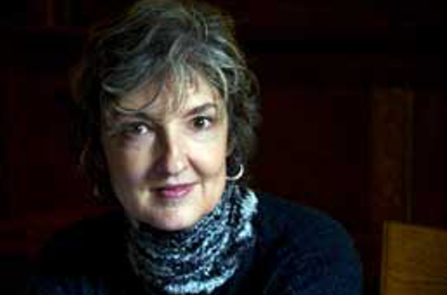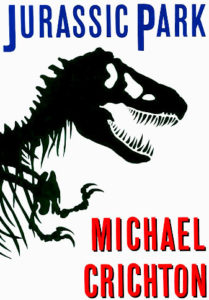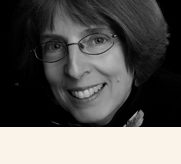
Photo by Annie Griffiths
In a recent essay in Publishers Weekly, “5 Writing Tips,” author Barbara Kingsolver said, “[Writing is] a project of balancing the audacity to do this work, and the humility to keep trying until you’ve gotten it right.”
The humility to keep trying.
I like that. And Lord knows, I’ve kept trying!
An unexpected value of blogging once a month is the ability to track the evolution of my writing. When I re-read my June 2013 post about killing a few darlings, I had to smile. Back in 2013, I remarked that I’d drafted 22 chapters. I can now report that after multiple darling-killing sessions, I’ve cut every one of those first 22. And I don’t say this to whine! I say it because it’s true and I appreciate that I needed to write them to get the story to a place that works; they don’t belong in the final version.
In July 2014 I blogged about my agent saying she couldn’t identify with my main character and couldn’t imagine anyone wanting to spend an entire novel with him. Ouch. After that, I considered scrapping it and starting something completely new. Instead, I buckled down and burrowed deeply beneath my protagonist’s skin. Who was this guy? What did he want more than anything in the world? Why did his story keep me up at night? What were/are my own issues related to gender identity and if I were a character in my novel, where would I fit in?
Somewhere along the way, I had four point-of-view characters and was alternating their chapters, telling the story in a Rashomon–style format. But it was too much. It didn’t work. I set aside that draft and began a new version with only one point of view, first person, present tense. Then I revised it into close-third. This month, I’m in the process of flipping the whole shebang into the past tense, which seems to be the place where the story flows best. But of course, you can’t simply change verbs from one tense to another without changing the voice, so that’s changing, too (in subtle ways… between the lines).
All of this is to say to anyone who’s struggling with a draft that isn’t quite working, take Kingsolver’s words to heart. Stay humble. Keep trying. Don’t give up. Hone the craft. The learning curve is steep.

Every once in a while I look for support from authors who’ve also taken many years to complete their novels, and this month I learned that Michael Crichton spent eight years writing Jurassic Park. So there’s hope!
Of course, I don’t mean to suggest that by mentioning Jurassic Park, I expect my new novel will become a bestseller. It’s not a thriller. (And in any case, per Kingsolver, I write with a lot of humility. Truth is, I write with a lot of doubt and insecurity, but those are subjects for another post.) For now, I’ll simply say this: it’s a joy to sense that my cast of characters is (finally) almost ready to go out into the world.
So, hang in there, y’all.
Keep trying. Keep writing. Happy New Year!
And thank you, Kristin Swenson, friend and fellow author, for tuning me into Kingsolver’s essay.


The humility. Yes. I suspect more regular writers feel that. Querying for “Other Fires” and have to force myself when I’d rather be writing my wizard manuscript. Querying is soul crushing. A slog. Thanks for good reminder to keep at it, all of it!
Agreed. Querying is a real drain. But what’s the worst that could happen? A rejection. If that happens, and if you’re fortunate, the rejection will include a suggestion for revision. That kind of suggestion—a tip from an industry pro—is golden. It’s a way to focus through the next round of revisions.
Great post, Anne! Such good advice fro Barbara.
I didn’t know Jurassic Park took that long to write! Wow! I remember back in the day when I was commuting regularly, everyone on the train who had a book to read was reading Jurassic Park.
I keep trying. I’m one of those people who are stiff querying after multiple rejections. I kept wanting to give up. But I’ve given up before. I know giving up doesn’t work!
No, giving up doesn’t work at all. And if we’re going to write anyway (whether or not we publish), it’s worth our while to hone the craft and not hurry to market a manuscript that isn’t quite right.
On Jurassic Park — yeah. If you click on the link that I put in the post above, you’ll see that Crichton said the book didn’t work when he tried to write it for kids. When he shifted gears and wrote it for adults, it finally sold. Big time!
Thank you for this piece! It’s well timed for me because my agent is retiring from kidlit (still sending adult projects out, including one of mine, until she fully retires in the next couple of years), and I’m returning to the query trenches. I know it will be a humbling experience, but since I have several projects ready to go, I won’t put too much emotion into any one of them. My agent had the humbling experience of editors not actually reading any of my manuscripts that she submitted, so none of them has been shopped out at this point.
And yes, about trying over and over to get something right: I rewrote the first chapter of the one she’s sending as adult something like 20 times.
Kudos to you for having several projects ready to go. I’m well into the drafting process on two new middle grades, plus polishing the manuscript that I think/hope is just about ready to be out in the world, so I can appreciate having multiple projects. I just wish all of mine were ready to go!
Anne, thanks for this Kingsolver quote and sharing your journey these past few years. I am heavy on humility and hadn’t thought to label the fact that I keep returning to the page audacity-I like that! May our audacity continue to push us ever further into our old stories and into new ones!
I hadn’t thought of it as audacity, either. In my life, writing has been more like a necessity: I have to write. The very process keeps me sane and balanced and centered. I’m still mulling over Kingsolver’s assertion about audacity. I don’t feel bold. But I do feel a need to dig more deeply, and I supposed there’s something audacious in that.
Thank you, Anne. Love the wise, inspirational words from both you and Barbara Kingsolver. I approach writing with doubt and fear and plenty of humility. I like thinking about audacity, too. I guess we, as writers, must develop that edge of courage to return to the page again and again.
That edge of courage to return to the page — well said. Yes. Again and again!